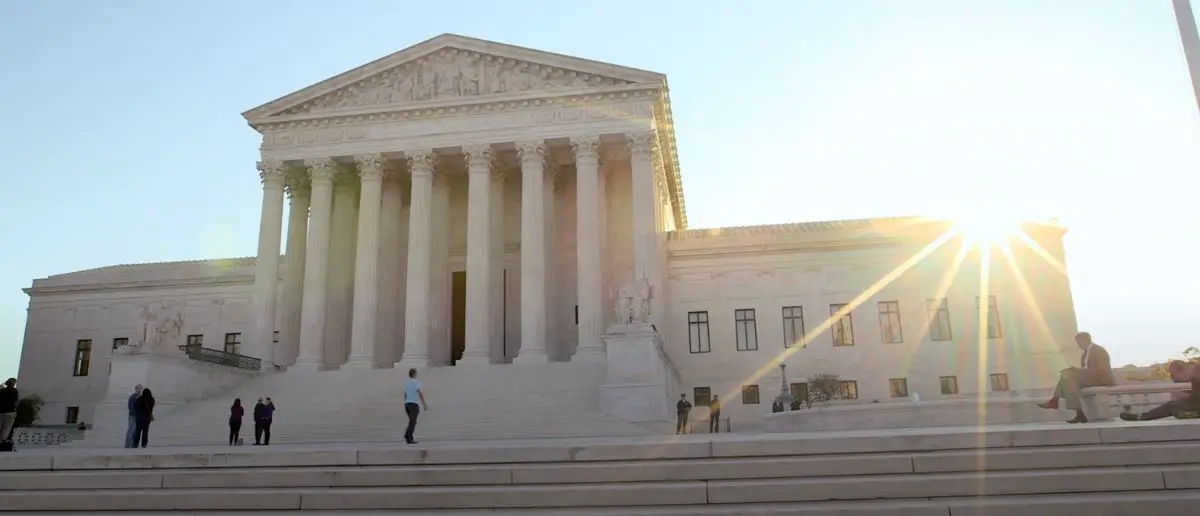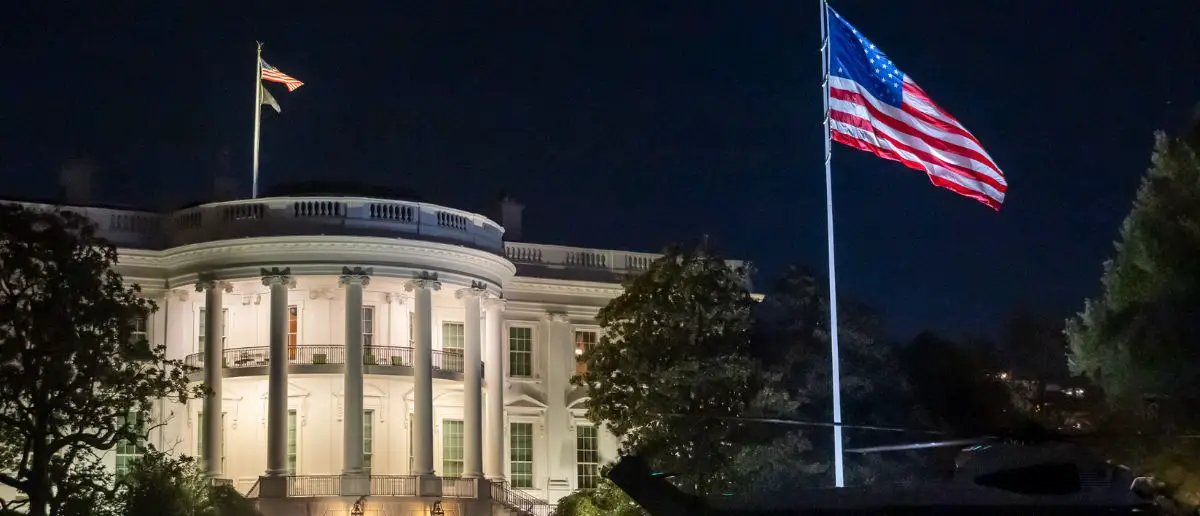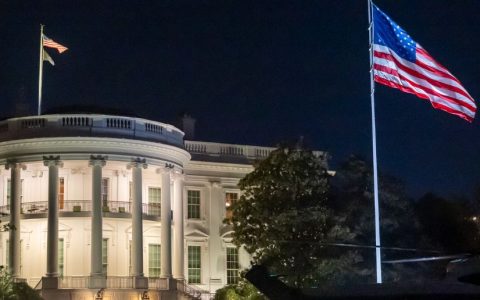
The courts have had to get involved in elections. Now the U.S. Supreme Court will need to step in.
Because the nation’s High Court was stunned by a lower court’s ruling that changes elections permanently.
Federal Court’s Ruling on Mail-In Ballots Sparks Outrage Over Election Integrity
A federal appeals court in Pennsylvania has thrown a wrench into the state’s election security measures, ruling that mail-in ballots lacking proper dates on their return envelopes cannot be discarded. This decision, handed down on Tuesday by the Philadelphia-based Third Circuit Court of Appeals, is the latest chapter in a contentious battle over mail-in voting rules in a state that often decides presidential elections. For hardworking Americans who value fair and secure elections, this ruling raises red flags about the integrity of our voting process.
The court’s decision overturns a Pennsylvania law requiring voters to handwrite a date on the outer envelope of their mail-in ballots. According to the judges, this requirement imposes an “unreasonable burden” on voters with “virtually no benefit for preventing fraud.” But many Americans, particularly those who prioritize election security, see this as a reckless move that opens the door to potential fraud and undermines trust in the system.
“Because of the Commonwealth’s date requirement, an inadvertent typographical error or a flipped number or even a stray pen mark in the date field will remove the ballot contained within the return envelope from consideration. And the voter may never be the wiser,” wrote Judge D. Brooks Smith, a George W. Bush appointee, for a unanimous panel. This statement, while acknowledging the voter’s mistake, ignores the real issue that without clear rules, there’s no way to ensure ballots are legitimate.
The ruling comes amid growing concerns among Americans about the security of mail-in voting. Polls consistently show that a majority of voters—especially conservatives—distrust mail-in ballots compared to in-person voting. A 2023 Rasmussen Reports survey found that 62% of Americans believe in-person voting is more secure, citing risks like lost or mishandled ballots, lack of oversight, and potential for fraud.
These fears aren’t baseless. Mail-in voting lacks the immediate verification of in-person voting, where voters present ID and cast ballots under supervision. With mail-in systems, ballots can be sent to outdated addresses, intercepted, or submitted without proper checks.
The Pennsylvania ruling only fuels these concerns. By allowing undated or misdated ballots to be counted, the court removes a critical safeguard that ensures ballots are cast within the legal timeframe. The date requirement, while seemingly minor, serves as a timestamp to confirm when a ballot was submitted, preventing post-election tampering. Without it, election officials have less ability to verify the integrity of ballots arriving in bulk, especially in a state as pivotal as Pennsylvania.
The judges—Smith, joined by Biden appointee Arianna Freeman and Obama appointee Patty Schwartz—argued that the date requirement violates the First and Fourteenth Amendments by creating “impermissible burdens” on voters. They claimed it’s cumbersome for election officials and offers little fraud protection. Yet, their own ruling admits only one fraud case in six years was cited, dismissing it as an “extremely unusual circumstance.” This downplaying of fraud risks ignores the bigger picture: even one case of fraud can erode public trust, and removing safeguards invites more opportunities for abuse.
“[D]iscarding thousands of ballots every election is not a reasonable trade-off in view of the date requirement’s extremely limited and unlikely capacity to detect and deter fraud,” Smith wrote. But for many Americans, discarding ballots that don’t follow basic rules is exactly what ensures a fair process. Rules exist for a reason—to maintain order and trust. If voters can’t follow simple instructions like dating an envelope, how can we be confident in the rest of the process?
The ruling’s implications are massive, especially for the 2028 presidential election and tight congressional races in Pennsylvania. As a swing state, Pennsylvania’s electoral votes are often decisive, and any loosening of election rules raises the stakes. President Donald Trump has long warned about the dangers of mail-in voting, pointing to the 2020 election where expanded mail-in balloting during the COVID pandemic led to widespread skepticism. His push to eliminate mail-in voting altogether resonates with millions who see it as a weak link in our democracy.
Posts on X echo this sentiment, with users like @kylenabecker arguing that mail-in ballots create “huge gaps in election security” due to complex chain-of-custody procedures and signature verification issues. These concerns aren’t just partisan noise—studies, like one from the Heritage Foundation, document cases of mail-in ballot fraud, including instances where ballots were stolen or submitted by unauthorized individuals. While rare, these cases highlight vulnerabilities that strict rules, like Pennsylvania’s date requirement, are designed to address.
The lawsuit behind the ruling was brought by a Pennsylvania voter whose ballot was rejected in the 2022 midterms, backed by Democratic Party organizations. It’s no secret that Democrats heavily favor mail-in voting, as their voters are far more likely to use it than Republicans. The court noted that only Berks and Lancaster counties defended the date requirement, with the Republican National Committee stepping in to support them. This disparity shows a clear divide: those pushing for looser rules stand to gain politically, while conservatives fight to protect election integrity.
Many county election officials have admitted the date requirement serves no administrative purpose and can confuse voters who, for example, write their birth date instead. But this argument misses the point. Voting is a sacred responsibility, and following basic instructions is part of ensuring the process is secure. If voters can’t get the date right, what else might they overlook? And why should election officials bear the burden of cleaning up these mistakes?
The RNC argued that Pennsylvania’s date requirement aligns with other legal standards, like those for wills and property transactions, which require precise documentation. Judge Smith dismissed this, writing, “This is like arguing that the Commonwealth can ban handguns because it bans lots of things, like owning a polar bear.” This flippant analogy downplays the importance of consistency in legal processes. Voting isn’t a casual act—it’s the cornerstone of our republic, and it demands rigorous standards.
Democrats, predictably, hailed the ruling as a win for “voting access.” Rep. Joe Morelle (D-N.Y.) declared, “Not only have we been securely voting by mail for decades, but even the President does it,” accusing Republicans of making voting harder because their agenda is “deeply unpopular”. This ignores the reality that many Americans, regardless of party, want elections they can trust. When rules are relaxed to the point of allowing errors without consequence, it fuels suspicion that the system is being gamed.
The RNC can still appeal to the full Third Circuit or the U.S. Supreme Court, and they should. The fight for election integrity is far from over. Americans deserve a voting system where every legal vote is counted—and only legal votes. Mail-in voting, with its inherent risks, already stretches public confidence. Allowing undated or misdated ballots to slip through the cracks only deepens the distrust.
Stay tuned to the DC Daily Journal.





